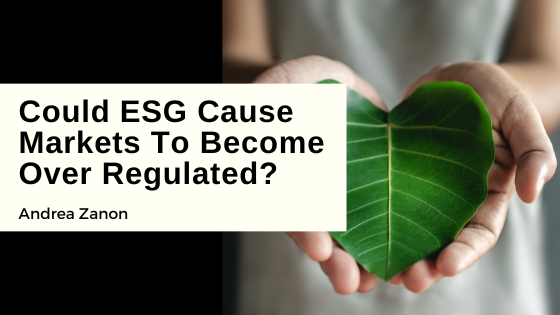The environmental, social, and governing attributes of the ESG model show themselves as more than relevant to the current society and marketplace. The standards that capital markets are held accountable to dictate the future successes and failures of society. The reliability of the ESG model comes from its ability to measure the value, the risk and its mitigation measures of an organization. Global regulations are being spearheaded by the Security Exchange Commission and the European Union with the virtues of ESG in mind. Tomorrow is the day when agencies must achieve ESG standards and comply with stricter reporting and disclosure requirements.
Adopting a Global Standard
With world economies connected through technology, our global-business market will take its structure from the talking points of ESG. Businesses will evaluate themselves based on their environmental impact, their social relationships, and the managing styles of their leaders. The global standard being adopted is one that sets the stage for new regulations. What those rules and laws will be is based on how many capital markets players hold to the ESG formula.
Understanding Individual Contributions
Through the help of a global standard, capital markets, banks, and individual businesses get a better understanding of the contributions they need to make. The promises of ESG are those that enable sustainability and, therefore, business longevity and share prosperity creation. The regulatory standards emerging, however, can only be abided by when businesses become agents of the virtues that build society and improve its quality of life. Understanding such contributions is necessary for success.
Sustainability and Inclusion
The trends that ESG regulation will generate center around greater transparency and reporting of capital markets and long-term sustainability. Sustainability isn’t limited to how businesses interact with or use natural resources. In many ways, the needs of society call for corporation that respect the social economies they serve. How employees are treated can make or break the promises of sustainability. Inclusion, on the other hand, establishes a free market where innovation thrives.
Mandatory Reporting
Future regulation is possible through reporting that assesses the milestones of ESG and that fits the businesses without over-regulating them.. How future businesses are evaluated calls for compliance, but how strict or lenient the compliance is—is subject to debate. What we can firmly say now is how revolutionary the ESG model became and we just need to make sure the private sector and the politicians strike a good balance.

